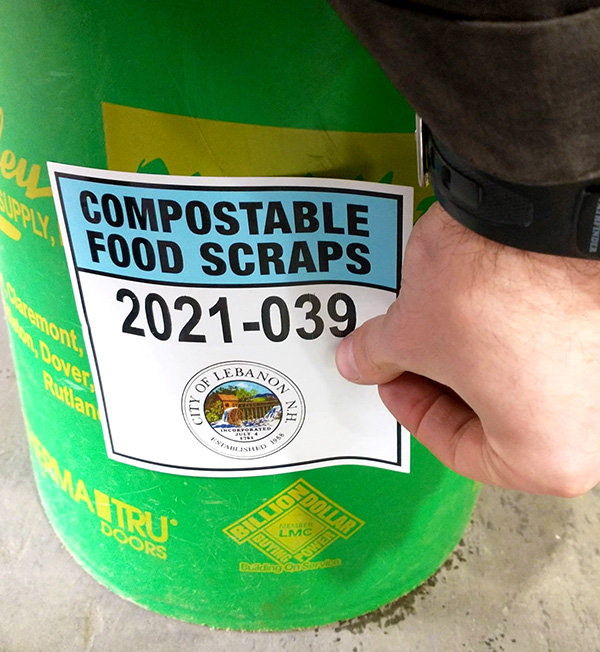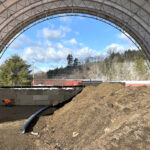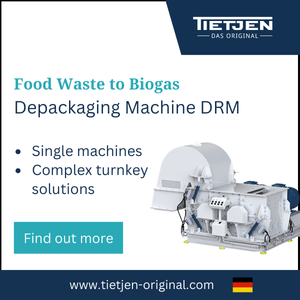Top: The updated rules include a permit exemption for small-scale food waste drop-off sites.
The New Hampshire Department of Environmental Services (NHDES) recently adopted revised rules for facilities that manage and compost food waste, which went into effect March 23, 2022. The updated regulations are intended to clarify and simplify requirements for operating a composting facility in New Hampshire. NHDES estimates that approximately 165,000 tons of food waste were disposed in 2020 — about 24% (based on U.S. EPA calculation of national food waste disposal) of the 688,000 of municipal solid waste disposed by the state’s residents, businesses, and institutions in 2020.

Households in Lebanon (NH) fill out an application to participate in the drop-off program. Once accepted, they receive a sticker to place on their bucket, and can start diverting food scraps. Photos courtesy of the City of Lebanon.
“The new rules should make it easier for entities to develop additional composting infrastructure in New Hampshire, thereby facilitating more food waste diversion statewide,” explains NHDES in a news release. “[They] make it possible for permit-by-notification composting facilities to compost all food scraps, including meat and dairy. Previously, composting of meat and dairy required a standard permit, which involves a more complicated permitting process compared to a permit-by-notification. …. The new rules simplify the process, which should encourage entities seeking to start composting facilities in New Hampshire.”
The new rules also add two key permit exemptions: one for small-scale food waste drop-off sites and another for community composting facilities. The food waste drop-off exemption allows collection and storage of up to one cubic yard (cy) of food waste (equivalent to roughly 40 5-gallon buckets), enabling food co-ops or other community centers to function as collection points without the need for a solid waste facility permit. This exemption could also enable start-up food scrap haulers to develop a distributed network of collection points in rural areas. In addition, the community composting permit exemption enables a composting facility to process up to 5 cy/month of food waste without needing a solid waste facility permit, allowing community composting operations at a localized scale, such as within a neighborhood or at a community garden. This exemption ensures that small-scale composting has a place in the Granite State, which may be important in rural areas.













